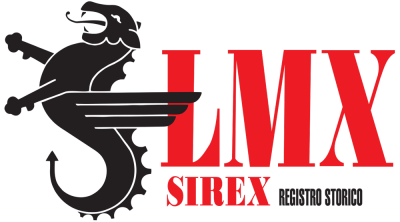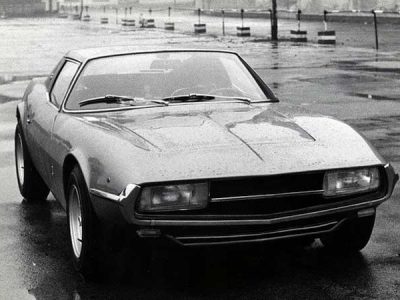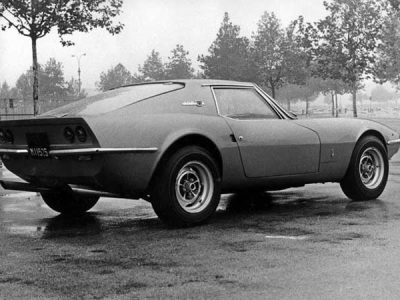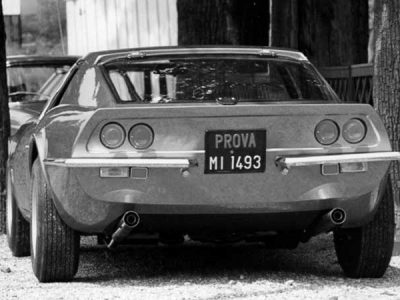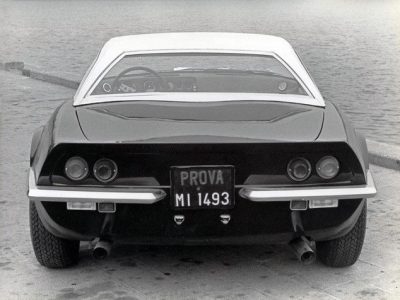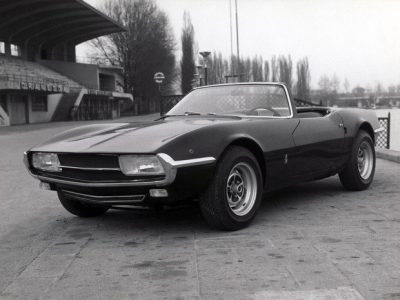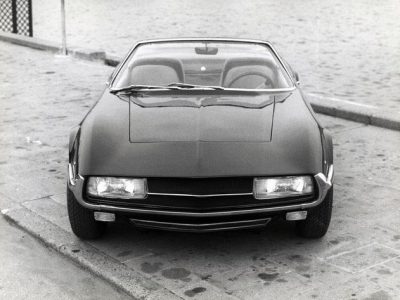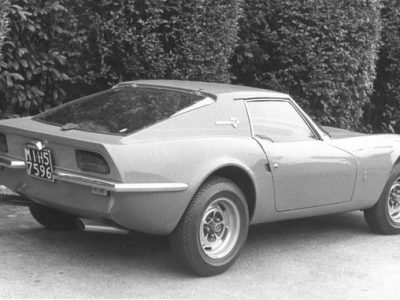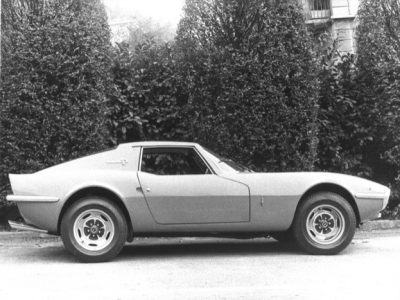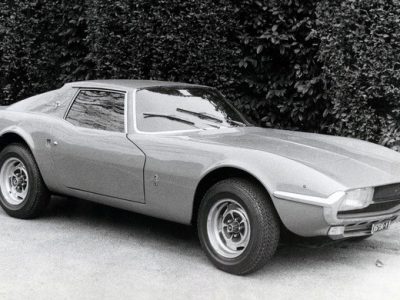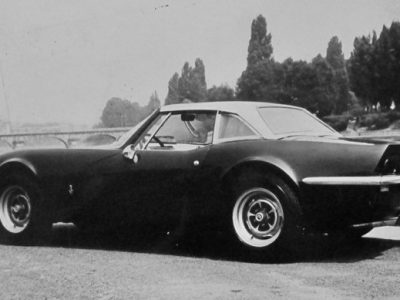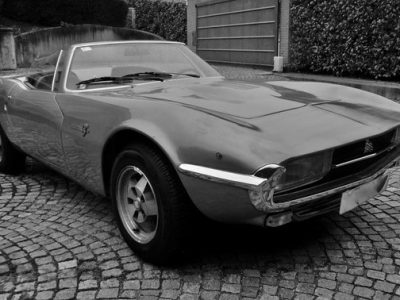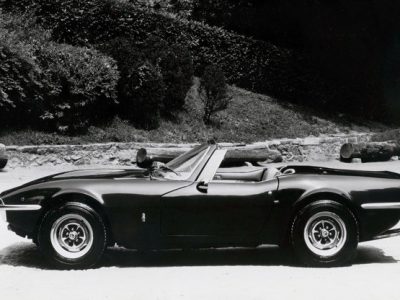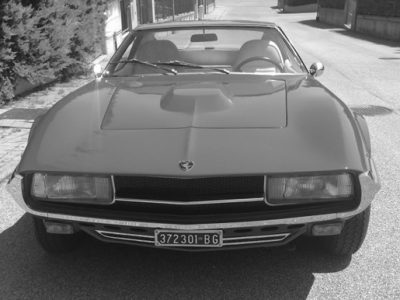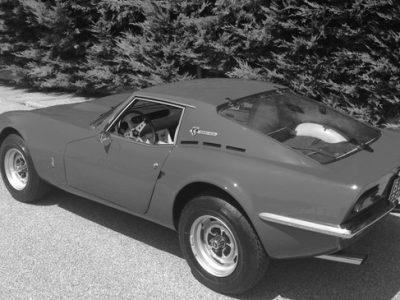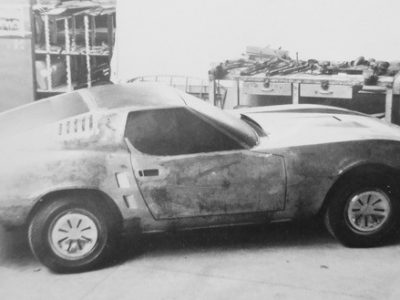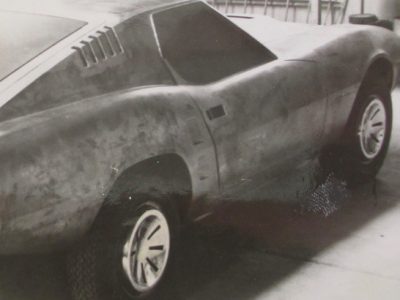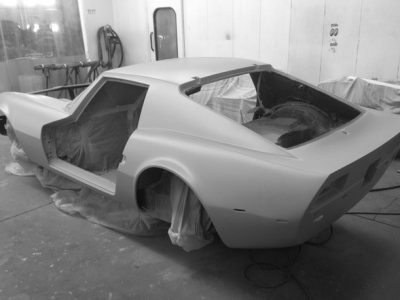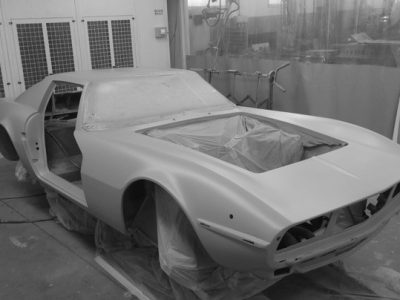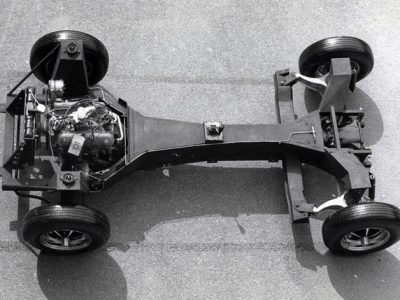types
Modelli
THE COUPE PROTOTYPE
Il prototipo coupé
THE SPIDER PROTOTYPE
La spider prototipo
Nel marzo del 1969 viene presentata la versione aperta denominata spider, anche se la possibilità di essere fornita di un Hardtop la rende una vera e propria trasformabile. Sempre due posti e con medesimi allestimenti del prototipo coupé ,a partire dai quattro elementi luminosi circolari posteriori. Modifiche nel cruscotto . La capottina in tela scompariva sotto una copertura che avvolgeva i sedili fino al tunnel centrale.
In March 1969 the open version called spider was presented, even if the possibility of being equipped with a Hardtop makes it a real transformable one. Always two seats and with the same fittings as the coupé prototype, starting with the four rear circular light elements.
Changes in the dashboard The canvas hood disappeared under a cover that wrapped the seats up to the central tunnel.
THE PRODUCTION COUPE
La coupé di produzione
Estate 1969 viene allestita la versione definitiva della coupé.
Le linee sono più morbide e ridotta leggermente la dimensione della calandra addolcendo il bordo inferiore del frontale. Tratto caratterizzante è la sostituzione delle quattro luci posteriori tonde i con due elementi di produzione Carrello .inserimento della luce targa posteriore ed apposizione di fregi sul montante posteriore con nuovo stemma raffigurante un drago/grifone. La plancia del cruscotto viene radicalmente modificata. Sulle coppette coprimozzo appare il logo con drago.
Due versioni : la base con meccanica Ford a sei cilindri di 2.3 litri ad alta compressione che sviluppa 126 cavalli e quella sovralimentata tramite compressore monostadio Costantin ,che porta la potenza 180 cavalli.
Summer 1969 the definitive version of the coupé is prepared.
The lines are softer and slightly reduced the size of the grille by softening the bottom edge of the front. Characteristic feature is the replacement of the four round rear lights with two production elements. Trolley. Insertion of the rear license plate light and affixing of friezes on the rear pillar with a new emblem depicting a dragon / griffin. The dashboard panel is radically modified. The dragon logo appears on the hubcaps.
Two versions: the base with 2.3-liter high-compression Ford six-cylinder mechanics that develops 126 horsepower and the supercharged one via a Costantin single-stage compressor, which carries 180 horsepower.
THE PRODUCTION SPIDER
La spider di produzione
Estate 1969, la versione aperta adotta tutte le modifiche della coupé ed i nuovi corpi luminosi posteriori e la luce targa. Notare l’inserimento dei deflettori alle portiere. Il cruscotto subirà ancora delle modifiche. Curioso il fatto che sulle coppette coprimozzo venga indicata la sigla L.M. X, anziché il drago. Quest’ultimo elemento verrà modificato.
Summer 1969, the open version adopts all the modifications of the coupé and the new rear lights and the license plate light. Note the insertion of the deflectors on the doors. The dashboard will still undergo some changes. Curious is the fact that on the hubcaps the initials L.M. X, instead of the dragon. This last element will be changed.
LMX TURBO
LMX Turbo
La versione turbo con 210 cavalli di potenza era facilmente riconoscibile dai sedili alti con poggiatesta integrato e dalla collocazione di tre prese d’aria laterali sul montante posteriore del tetto e dalla gibbosità al centro del cofano motore per ospitare la scatola modificata del filtro di aspirazione. Sono state comunque costruite autovetture con il medesimo allestimento pur essendo in versione aspirata e viceversa.
The turbo version with 210 horsepower was easily recognized by the high seats with integrated headrests and the placement of three side air intakes on the rear roof pillar and the hump in the center of the engine hood to accommodate the modified intake filter box. However, cars were built with the same set-up despite being in the aspirated version and vice versa.
THE SECOND SERIES COUPE
La coupé seconda serie
Linea completamente differente ,pur mantenendo gli stilemi tipici della prima serie ,a partire dai gruppi ottici anteriori, aspetto complessivamente più morbido e pur nel rispetto delle dimensioni di base dell’auto da cui deriva ,assume una fisionomia “più importante”. Prevista la sola versione con sovralimentazione May-bosch. Una linea che ha retto così bene al trascorrere del tempo , tantoche’ alcune auto sportive americane prodotte diversi decenni dopo, ne ripetono in modo sorprendente linea e soluzioni.
Completely different line, while maintaining the typical styles of the first series, starting from the front light clusters, an overall softer appearance and while respecting the basic dimensions of the car from which it derives, it takes on a “more important” appearance. Only version with May-bosch turbocharging is expected. A line that has stood up so well to the passage of time, so much so that some American sports cars produced several decades later repeat its line and solutions in a surprising way.
THE TECHNIQUE
La tecnica
Il progetto LMX nasce con l’obiettivo di dar vita ad un’autovettura sportiva attrattiva non solo per una linea moderna ed accattivante , anche ma innovativa in ogni suo aspetto, a partire dalla carrozzeria realizzata in fibra di vetro con scocca monoblocco a spessori differenziati , così da garantire leggerezza dell’insieme ,unitamente ad una grande sicurezza per guidatori e passeggeri in caso di collisioni.
Infatti la vetroresina assicura una plasticità agli urti di sette volte superiore ai comuni lamierati impiegati nelle costruzioni automobilistiche.
Il tutto abbinato a un telaio ispirato alla tecnica delle auto da competizione degli anni 50 e 60. Un telaio a trave centrale scatolato, in modo da renderlo leggerissimo tanto da pesare solamente 74 kg. L’insieme reso ulteriormente affidabile attraverso l’utilizzo componenti meccanici collaudati, che potessero garantire una reperibilità ricambi ed una rete di assistenza in tutta Europa. La sovralimentazione su una vettura di serie poi, anticipava coraggiosamente il frenetico sviluppo che si ebbe a partire dagli anni 70 nel mondo dell’auto.
The LMX project was born with the aim of giving life to an attractive sports car not only for a modern and captivating line, but also innovative in every aspect, starting from the body made of fiberglass with monobloc body with different thicknesses, so as to ensure lightness of the whole, together with great safety for drivers and passengers in the event of collisions.
In fact, the fiberglass ensures a plasticity to impacts seven times higher than the common sheet metal used in automotive construction.
All combined with a frame inspired by the technique of racing cars of the 50s and 60s. A frame with a boxed central beam, so as to make it very light enough to weigh only 74 kg. The set made even more reliable through the use of tested mechanical components, which could guarantee spare parts availability and a service network throughout Europe. The supercharging on a production car bravely anticipated the frenetic development that took place in the automotive world starting from the 1970s.
Subscribe & Save
Siamo alla ricerca di informazioni e notizie riguardanti esemplari di LMX esistenti.
We are looking for information and news regarding existing LMX specimens.
